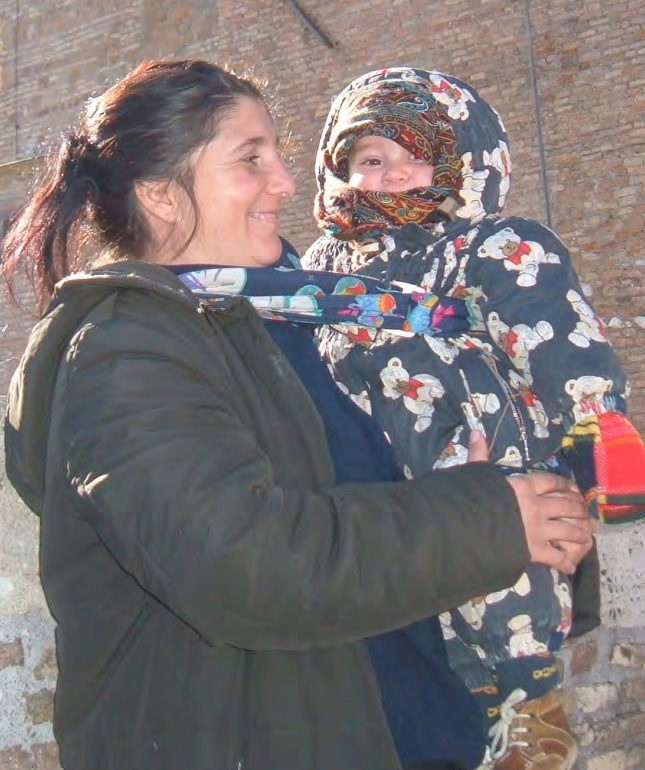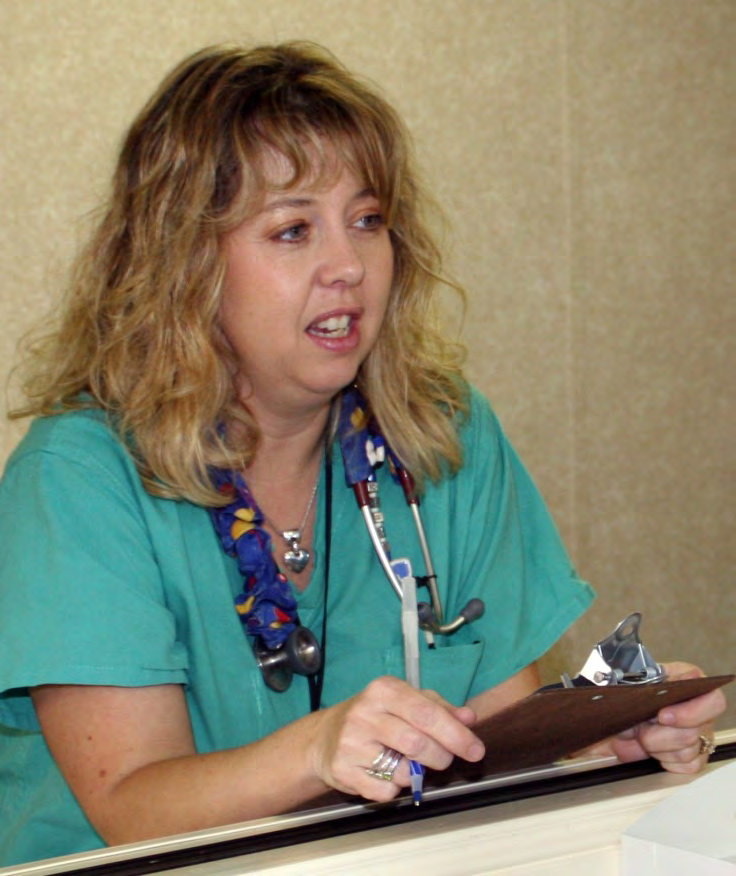Introduction

"Some criteria have to be borne in mind when analysing the issue of Roma/Gypsy women, including:
- The group of Roma/Gypsy to which the women belong
- Their place of living – urban or rural
- Their marital status
- The social group to which they belong
- The specificities of the culture of the majority populations
- The religion."
Bitu, N. 1999 ‘The situation of Roma/Gypsy women in Europe’
Council of Europe, Strasbourg
- In the traditional Roma society, women hold the major share of domestic responsibility and may spend most of their reproductive years pregnant or nursing. As a result, they have little time to spend on themselves.
- For the majority of Roma there is not enough money to ensure that the women get good food, decent living conditions and adequate health care.
- Living in a country that is not their own, where they may not have the same kind of family support system that they have been used to and where both the language and the rules, regulations and procedures are all unfamiliar, then their lives become at times extremely stressful.
- Many Roma women although generally uncomplaining, get very weighed down by all this and can get increasingly depressed without anyone noticing.
- With their traditional reluctance to discuss intimate matters with anyone outside the family, and taking into consideration the fact that for most Roma women talking to health professionals requires an interpreter to be present, one begins to realise just how unlikely they are to be able to take advantage of the care and support that is available to them from health professionals.
- In Newcastle and Derby for example this situation was recognised very quickly by senior staff in the midwifery and health visiting services and they made strategic plans to enable the service to offer extra time and support to Roma mothers and children in those cities.
Contraception and pregnancy
The following two short videos address questions about Roma women, family planning and ante/post natal care, giving advice for improving working relationships and communication.
Case Study - Gabi

Gabi is now 25 years old. She has lived in England for twelve years, coming here with her parents when she was thirteen.
Gabi never went to school in the UK but she taught herself English and eventually went to college to study further.
When she was 19, her father introduced a young second cousin to her saying that, if Gabi was in agreement, he wanted to arrange a marriage with the young man.
Gabi liked the boy and a year later they married and left to live in Romania.
Whilst in Romania, Gabi went into hospital for an operation to help with severe menstrual problems.
After eighteen months and when Romania became an EU member state, the couple returned to help with the family car washing business in Birmingham.
After three years Gabi had not had a child and her husband’s family had taken her to their GP and arranged for Gabi to have an examination under anesthetic; this was done privately.
Later the specialist she had seen gave the family a report saying that Gabi was unable to have children.
What are the possible reasons for Gabi failing to conceive?
- Endometriosis affecting her fallopian tubes, which is why she had an operation in Romania?
- Her husband’s infertility following an untreated STD?
- She had been sterilised without her knowledge?
Through a medical charity I was able to get Gabi seen by a specialist at a Harley Street fertility clinic.
This consultant confirmed what the Birmingham doctors had said and gently he told Gabi that at some time her fallopian tubes had been cut and tied, making it impossible to conceive and also that the procedure was irreversible.
He took Gabi through her gynaecological history and the only time that this procedure could have taken place was when she went for the routine operation (a D&C) whilst in Romania.
Coercive sterilisation
 In a similar situation, Helena, a Czech Roma woman, who had given birth for the second time by Caesarean section, awoke to be told, not that her baby was well and thriving, but that she had been sterilised.
In a similar situation, Helena, a Czech Roma woman, who had given birth for the second time by Caesarean section, awoke to be told, not that her baby was well and thriving, but that she had been sterilised.
Coercive sterilisation has been a major issue in the Czech Republic, Hungary and Slovakia. In the Czech Republic, Roma women were systematically sterilised as state policy from 1972 in order to reduce the birth-rate of the Roma population.
The practice of sterilising Roma women, especially when a Caesarean section is performed, lasted well into the 1990s with allegations that some coercive sterilisation surgeries took place as late as 2007/2008.
Such unrequested sterilisation of Roma women continues in other countries. There have been more cases of Romanian Roma women only finding out that they have been sterilised when they fail to fall pregnant after undergoing some routine gynaecological surgery.
As some survivors who have fled the Czech Republic/Slovakia now live in the UK, coercive sterilisation and its side effects are factors which should be considered in a sensitive manner by healthcare staff when interacting with Roma women.
This issue is important here because such practices inevitably impact on perceptions of healthcare authorities. As healthcare providers, it is important to consider the gynaecological implications and finally, the impact on the women and their partners of not having children in a society where family plays a central and fundamental role.
See the factsheet in the Resources section on Coercive Sterilisation Worldwide by the Open Society Foundation, 2011.
HIV/AIDS, other STDs and risk-related vulnerability
 Gender dynamics mean that many Roma women are unlikely to be allowed to choose 'when, with whom, and with what protection, if any, to have sex.’
Gender dynamics mean that many Roma women are unlikely to be allowed to choose 'when, with whom, and with what protection, if any, to have sex.’
Rigidly defined gender roles, including the subordination of women to men in many aspects of daily life, are characteristic of many Roma communities. Roma girls whose families or communities adhere to traditions that equate a girl's virginity with family honour tend to place the responsibility for sex education on a mother-in-law or sister of a new husband.
The combination of poor access, discrimination and low visibility has meant that public health campaigns have not reached the Roma community.
There is little access to information amongst Roma on prevention and treatment of STDs and HIV/AIDS. There is limited or no awareness about transmission, prevention or symptoms. Irregular access to health care exacerbates these shortcomings in education.
Information on STDs including HIV/AIDS is of special interest to women, who are more vulnerable to STDs than men, and the consequences are more serious for them. Many STDs are asymptomatic in women so they go untreated; the presence of untreated STDs is a risk factor for HIV; as with STDs, women are at least four times more vulnerable to HIV infection.
Particular emphasis needs to be placed on the education of adolescents and young people.
There is an urgent need for the development of HIV prevention programmes culturally sensitive to Roma populations from Central and Eastern Europe, where HIV rates are rapidly rising.
Roma adolescents may be particularly affected by traditions and gender roles that impede access to information on sexual health. Generally, ignorance about STDs and HIV are likely to be widespread among adolescents and young people - the very groups who are likely to be more sexually active than others, and who have poor access to STD services.
Breaking the Barriers: Romani Women and Access to Public Healthcare, 2003
Further study
Use the information in this unit to consider what you could do if you...
- ...wanted to speak to Roma women about contraception options? What approaches could you take and what should you bear in mind?
- ...suspected a woman had been through coerced sterilisation? Where could you go to for further information? What elements of support might the woman and her partner need?
- ...wanted to develop an HIV awareness programme targeted at the Roma community? What approaches could you take and what should you bear in mind?
A holistic understanding of the situation is fundamental to accurately being able to classify and support those who need it most.
